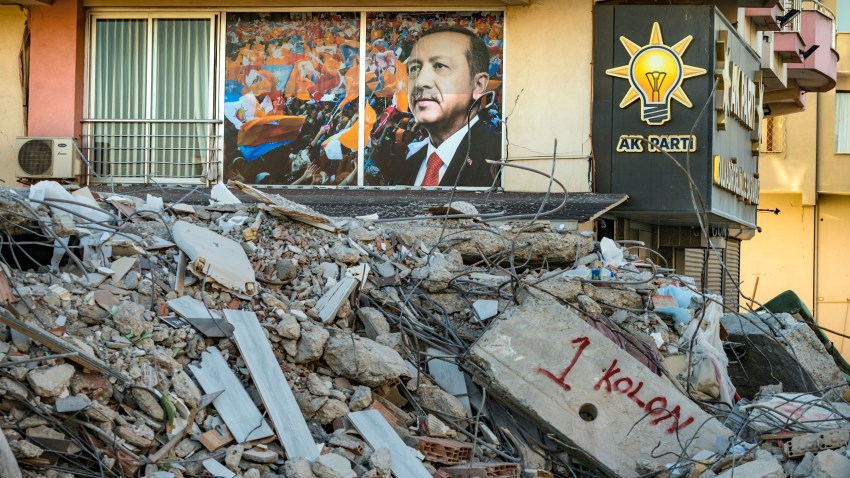The devastating earthquakes that struck southern Turkey on Feb. 6 spell trouble for President Recep Tayyip Erdogan ahead of elections that polls had already shown would be no easy victory. Within days, the disaster had reshaped electoral calculations ahead of the May 14 vote by directly challenging several key and longstanding elements of Erdogan’s narrative claim to leadership.
These include his image as the nation’s “master builder” who initiated and has overseen a vast physical transformation of the country since first coming to power as prime minister in 2003. Widespread perceptions of a severely problematic handling of the earthquake’s ongoing aftermath have also tarnished Erdogan’s image of competence, which dates back to his days as the mayor of Istanbul in the 1990s. And the entire episode undermines Erdogan’s belligerent nationalism, a central ideological feature of the second half of his two-decade reign.
The quake has killed tens of thousands of people and sparked a major humanitarian crisis. Bodies remain in the ruins, and relief workers are struggling to aid survivors huddling in the winter cold. Amid such suffering, the disaster’s political implications might seem secondary.

